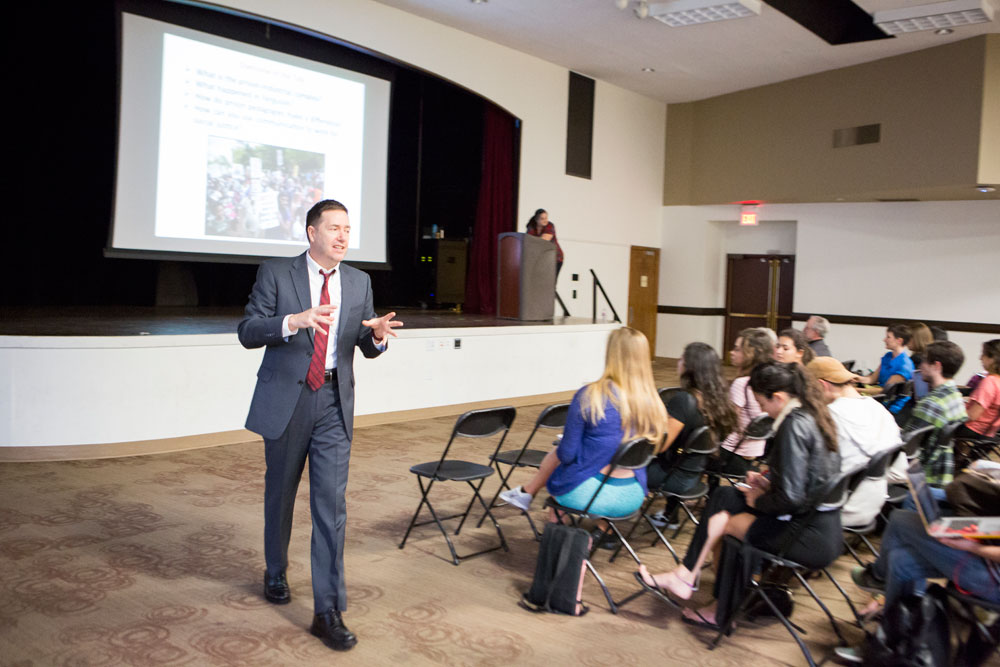
It’s not the most camera-friendly department in the College of Communication and Fine Arts, but the work being done in the Communication Studies Department definitely deserves a second look.
“Our focus is on scholarship, leadership, and activism,” said Michele Hammers, associate professor of communication studies and chair of the department. “The social justice mission is front and center for us — and our aim is to examine how people can communicate and act more ethically across all aspects of their lives.”
With 458 students, communication studies is the second-largest major at LMU. Hammers said the program’s curriculum fosters articulate students with important practical skills. These skills prepare students for success across their personal, professional and public lives. Notably, these skills aren’t just learned in the classroom. For example, Tom Dowd, clinical professor of communication studies and director of debate, is recruiting first-year students into the debate program and focusing on building the team’s diversity. Under Dowd’s direction, debaters of all levels of experience and backgrounds have the opportunity to develop their critical thinking and public speaking skills, while participating in a rich intellectual community.
Hammers added that the emphasis on foundational skills makes the communication studies major a strong foundation for students’ professional development, with students successfully pursuing a variety of career pathways. The department participates in the college’s “Conversations With” series, featuring successful alumni in career-related conversations.
In addition to these professional development events, invited guests and courses focus on important social issues. In February, Stephen John Hartnett of the University of Colorado, visited campus to talk about “Communication, Social Justice, and Prison Pedagogies in the Age of Ferguson.” This talk tackled tough questions related to recent social justice actions taking place across the country.
Hartnett’s talk highlights the work being done within communication studies. Kyra Pearson, associate professor of communication studies, teaches a course titled “Culture, Crime and Punishment.” Pearson noted that the United States is the world’s leading incarcerator. “We need to address U.S. mass incarceration,” she said. “We need more than just legal consideration; we need a vital public debate. It’s starting to happen, and communities have been leading the conversation.” One aspect of her course is to get her students involved in that conversation.
Pearson is also working with students conducting a needs assessment related to prison education at the Century Regional Detention Facility, also known as the Lynwood women’s jail. About 10 students have designed and participated in focus groups with women incarcerated there. Pearson’s course — and the related student engagement — demonstrate the department’s commitment to social justice and student leadership beyond the classroom.



